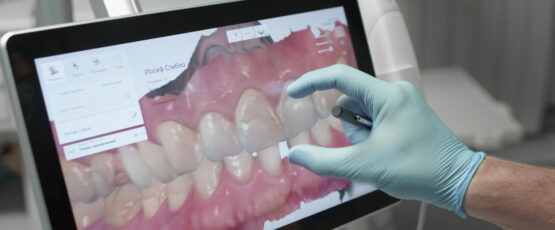
This year, we have been experienced an unusually warm winter, however, the wind last week and clear weather over the last few days has seen many areas of the UK see the temperature dipping to/below zero for the first time – and with it, a lot of people suffering from tooth pain. So why exactly is it that your teeth hurt in cold weather and should you be worried? Our experts take a closer look.
How does low Temperature affect your teeth?
In order to understand the effects of cold weather on our teeth, we must take a moment to consider the normal conditions that our teeth experience. For almost 99% of our waking hours, our teeth sit comfortably at the ambient body temperature of 37 degrees Celsius, protected by the warmth within our mouths. Only when we eat or drink are they typically exposed to any other temperature. A sudden increase or decrease from body temperature – even barely perceptible to the skin – can cause a shock to the teeth. You may have experienced this effect when eating an ice-cream or sipping a hot coffee. Exposing your teeth to cold air from outside can have exactly the same effect.
Is there something wrong with my teeth?
Although it is quite possible your teeth hurt in cold weather purely from exposure to the low-temperature air, if you have any defects to the teeth you will be much more likely to experience extreme discomfort in cold weather. There are several common issues that may cause problems with pain in winter. Damaged fillings can allow the inner tooth to be exposed to cold air, while defective crowns or bridges which leave sensitive parts of the tooth exposed or cracks in the teeth. If you are experiencing frequent or persistent tooth pain in winter or at any time of year, then it is advisable to seek advice from your dentist.
What other oral health issues can cause tooth pain in winter?
Oral health issues that affect your teeth and/or gums can also increase seasonal tooth pain. Periodontal (Gum) disease can lead to a problem known as recessed gums, which leaves the sensitive base of the teeth exposed. If you frequently experience pain in your front teeth, which often have direct exposure to cold air, this may be the cause. Infections in your teeth and gums can also exaggerate the effects of low temperatures, as can cavities in the teeth – even if they are relatively small. Because teeth are porous, any surface damage can cause high levels of pain as cold air penetrates to the more sensitive layers.
Gaps and Fillings
Gaps caused by missing teeth and large fillings can also be very problematic at this time of year. A missing tooth can leave the inside edges of the teeth around it exposed to low temperatures, whilst large metal fillings can become very cold and affect the surrounding tooth. If you have a gap, we would advise you to consider dental implants as an option. Dental implants are suitable for almost every patient and allow your missing tooth to be replaced with a crown that looks and feels just like your natural teeth, without having an impact on any of the surrounding, healthy teeth.
Should I have a dental check-up?
Any discomfort or pain in your teeth when going outside in cold weather is a sign that your teeth and gums may be in need of attention and it is advisable to contact your dentist to book a check-up. Even if you are prone to sensitive teeth, do not assume that it is simply the cold and nothing more.
Perfect Pearls are proud to be able to offer completely free consultations to help make people aware of their treatment solutions. A range of treatments for problems such as implants to replace missing teeth and root canal treatment at some of the lowest prices in the UK are available to help. With a highly experienced team and access to the very best in equipment, our conveniently located clinic is easily accessible from most areas of the UK. Why wait and suffer this winter – call us now on 01902 500823 or contact us online for a quick response.








